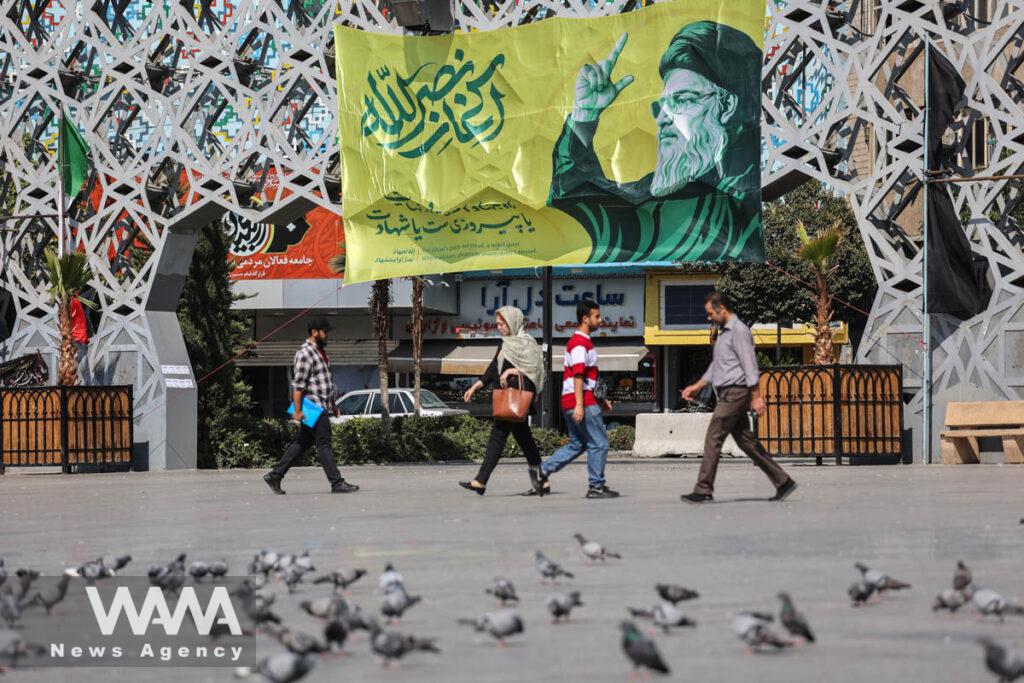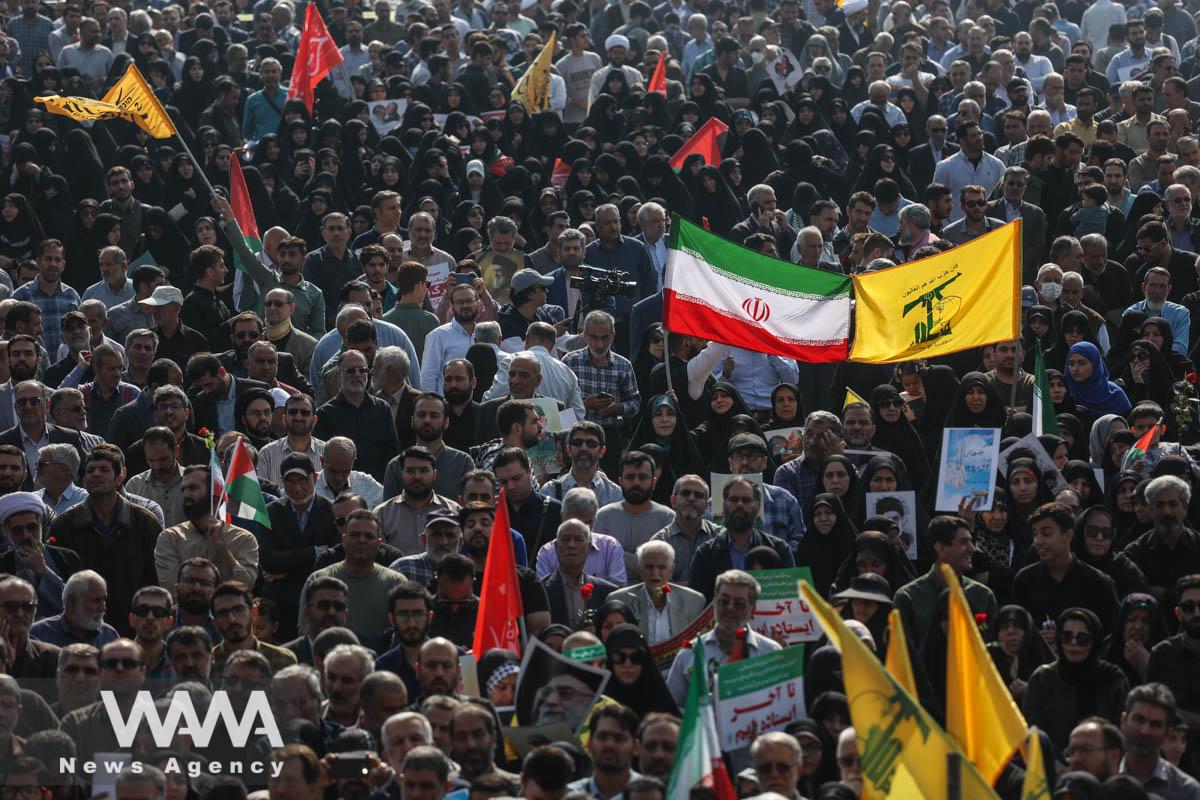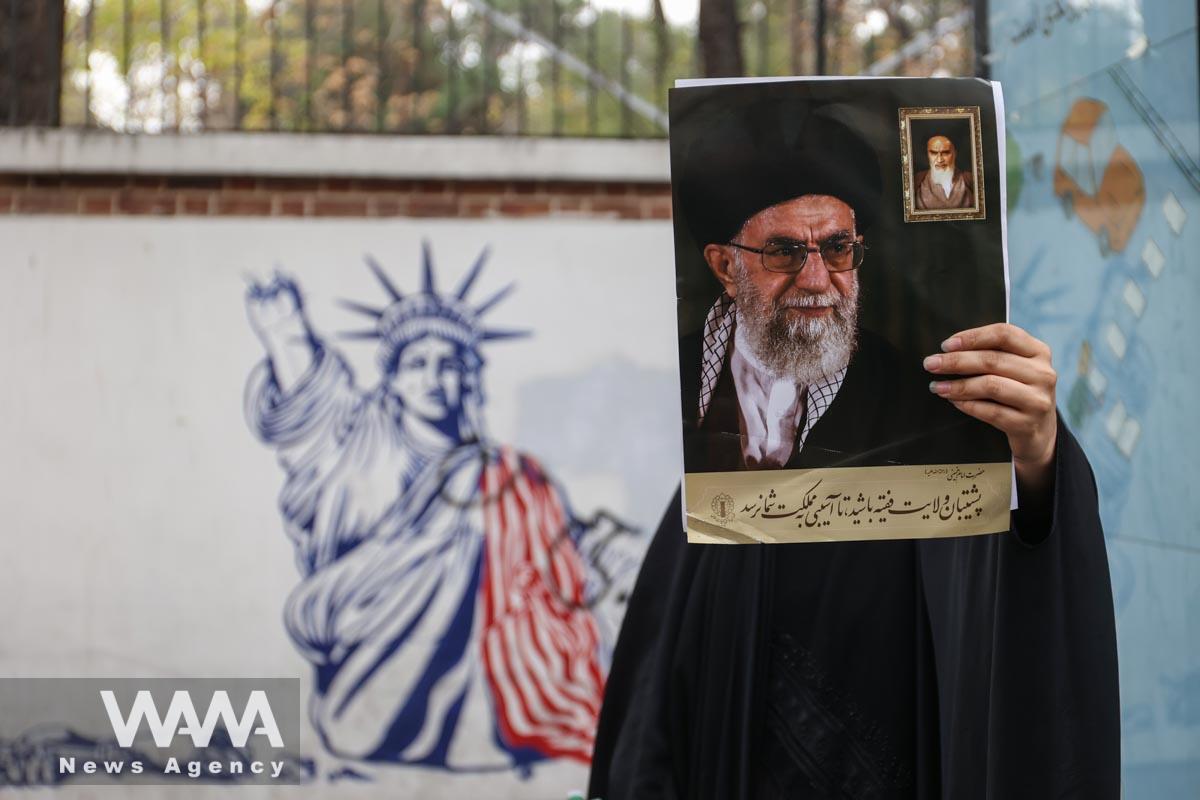Endless Resistance: Leaders May Fall, but the Spirit of Resistance Endures
WANA (Oct 22) – How is it that over the years, resistance leaders fall one after another, yet the ideology and spirit of resistance remain alive and even grow stronger? The answer to this question might lie in the philosophy that Imam Khomeini, the founder of the Islamic Revolution of Iran, articulated in the 1960s. In the midst of his struggles against the Pahlavi regime, he confidently stated: “My companions are in the cradles.” This statement, which might have been seen as merely symbolic at the time, has since revealed its deeper meaning.
Imam Khomeini believed that resistance is not dependent on individuals. From the outset, he knew that this struggle would not be limited to the physical presence of leaders. Instead, the ideology of resistance is deeply rooted in the culture and beliefs of the people and can be passed from one generation to the next. Qasem Soleimani, the renowned commander of Iran’s Quds Force, born in 1957, was exactly one of those “companions in the cradle” Khomeini referred to. He later became one of the most prominent symbols of regional resistance.

Nasrallah is Gone, But Hezbollah Will Endure
WANA (Sep 28) – A few minutes ago, Hezbollah officially confirmed the death of Sayyed Hassan Nasrallah, the influential leader of the group. This news, which was previously claimed by Israel, is no longer a rumor but a reality that could push the Middle East into a new phase of tensions and conflicts. Nasrallah’s death […]
This notion is not confined to Iran alone. Sayyed Hassan Nasrallah, the leader of Hezbollah in Lebanon, is part of a generation that, in its youth, was influenced by the Iranian Revolution and its ideas of resistance. Drawing from the same ideology of resistance, Nasrallah transformed Hezbollah into one of the most formidable resistance forces in the region. He has often said, “If I am gone, Hezbollah will remain.” Ayatollah Khamenei, affirming this point, has repeatedly emphasized after the deaths of resistance leaders, “Hezbollah is alive; leadership and command may change, but the essence of resistance will remain.”
This phenomenon is clearly seen throughout the history of regional resistance. Yahya Sinwar, a leader of Hamas born in the 1960s, became a prominent figure in Palestinian resistance. As Imam Khomeini predicted, these individuals not only became leaders of the resistance but also carriers of an ideology passed on to future generations.

People walk past a billboard with a picture of the late Lebanon’s Hezbollah leader Hassan Nasrallah in a street in Tehran, Iran October 7, 2024. Majid Asgaripour/WANA (West Asia News Agency)
A Stark Contrast: Popular Resistance vs. the Fear of the Opposing Side
For the opposing side, the Israeli regime, this battle is not merely military. While regional resistance movements are based on deep principles of standing up against oppression and defending justice, the opposing side operates largely from a place of fear for survival. This fear has driven many Israeli citizens to seek refuge abroad with each military strike on neighbouring countries.
In contrast, resistance movements like Hezbollah and Hamas, despite enduring immense pressure and repeated attacks, have not weakened; they have become even stronger.
This philosophy and culture are reflected in statements like the one made by Abbas Mousavi, former Secretary-General of Hezbollah: “The assassination of leaders will not stop us, but rather make us stronger.” This statement captures the historical reality of resistance.

People attend the funeral ceremony of Iranian Revolutionary Guards’ (IRGC) deputy commander Brigadier General Abbas Nilforoushan who was killed in the Israeli strikes on Beirut, in Tehran, Iran, October 15, 2024. Majid Asgaripour/WANA (West Asia News Agency)
Repeated attacks on Gaza and civilian infrastructure demonstrate that Israel has come to realize that resistance cannot be defeated solely on military fronts; it is deeply rooted in the society and culture of the people.
What Israel fails to recognize is that each attack, each assassination, not only brings forth new leaders but also fosters greater unity within the community. As Imam Khomeini stated, the companions of the resistance are in cradles, and with each martyr, the flame that rises from the hearts of the people is reignited and passed on to the next generation.
It is likely that Netanyahu understands Imam Khomeini’s message well, which is why he sees the destruction of the very generation of resistance as the only path to ensure his own survival.

When the Sound of an Explosion Couldn’t Deter Authority
WANA (Oct 09) – At the moment when the sound of an explosion echoed during a Friday prayer sermon, everyone expected the speaker to immediately leave the scene. But what happened went beyond common expectations. In 1984, when Ayatollah Khamenei, the then-president of Iran, was delivering a sermon during Friday prayers in Tehran, a […]













